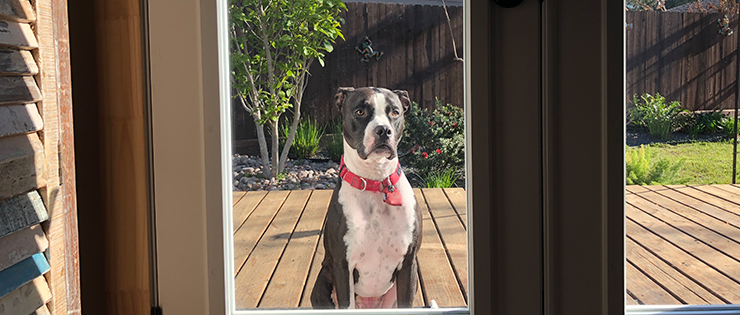
It may be surprising to hear that most animals on earth are solitary. This means that they spend the majority of their lives on their own. Of the nine million species we know about, most of them exist in this world, seldom coming into contact with others of their kind. But, when it comes to our pets, we are most drawn to animals that are highly social and affectionate towards us. As social animals ourselves, we seek out pets who complement our communal instincts.
Whilst we may have to be apart from our pets each day for a period of time, we as humans are still able to engage in social activities; whether that be for work, family gatherings or social catch ups. Our pets do not have the same options when we leave them. Understandably, leaving our pets on their own can be a very lonely time for them, which often becomes stressful, resulting in chronic anxiety and sadness. Loneliness is in my opinion, the most common issue in pet animal welfare.
Whilst cats are less likely to suffer loneliness, they do experience distress, particularly if they are especially needy and predisposed to anxiety. Dogs are undoubtedly the most affected, with separation anxiety being the most common presentation in my line of work as an animal behaviourist. It makes sense that dogs suffer from loneliness. We, as humans, have bred dogs to be loyal and dependent companions. We inadvertently reinforce them following us, or whimpering to come inside, and needing to have us in their constant sight. We have in many ways, created a species that needs to have us around, all the time. Dog behavior is therefore invariably heavily influenced by our behaviour.
Whilst my dogs may love to be with me as much as possible, they have predictability in their lives. I have created a routine in which they understand that being left alone can represent an opportunity to them, rather than a punishment. Here are some tips to help alleviate your pet’s distress during the times in which you are absent.
- Teach your puppy/kitten the benefits of alone time. Create a safe zone, where great things always happen. This is where they rest, get treats, and always have calm and positive experiences. This place is essential for all pets. It is easiest to cue your dog to their bed, over other pets. Teach them to station to their safe zone and give them something to play with alone. Food is a great motivator during these times as it is a solitary activity.
- Discourage your pet from following you everywhere. This is inadvertently reinforced, so try to be mindful about redirecting their attention to something else, instead of you.
- Cue your dog to their bed for increasing amounts of time, gradually increasing the amount of time they stay apart from you. This creates a predictable expectation that when they are released from their bed, they will be rewarded for the impulse control. Start with baby steps, never expecting them to stay there for longer than they are able to. Otherwise, you end up making the experience more stressful and less positive.
- Find a play group or doggy day care that has an excellent reputation and that you trust. I recommend you take your dog to one and look around together. You will get a vibe for the place and your dog will let you know if they are enthusiastic or not. Look for optimistic behaviours such as engaging calmly with other dogs, playing and play bows, and wanting to move away from you to engage with other dogs.
- Employ a dog walker. There are some incredible trainers who are available to walk your dog during the day.
- Consider adopting another dog. Always allow your dog to help choose their lifelong play mate, by taking them to the shelter with you. Imagine if someone was brought to your home without you asking, and it was someone you wouldn’t generally like or want to live with. This is often how dogs feel when another dog is thrust upon their home territory.
- Don’t get angry when your dog expresses his loneliness by destroying your favourite outdoor setting. I understand that it can be incredibly frustrating, but most destructive behaviour is a reflection of the dog’s emotional state. Loneliness, boredom, anxiety and frustration are some common emotions dogs experience each day. If they are destructive, ask yourself how you can help improve how they feel, whilst you are not around.
Whilst I avoid anthropomorphising pets as much as possible, there can be no doubt that we experience some similar emotions to them. Social animals like us, dogs, rabbits, and guinea pigs to name a few, all require social stimulation. If we put ourselves in our pet’s shoes a little more, we may realise that their needs are not too dissimilar to ours, and that a little bit of time and effort spent into listening to them, can make a world of difference.
For more information on curbing loneliness and separation anxiety, head to laurav.com.au.